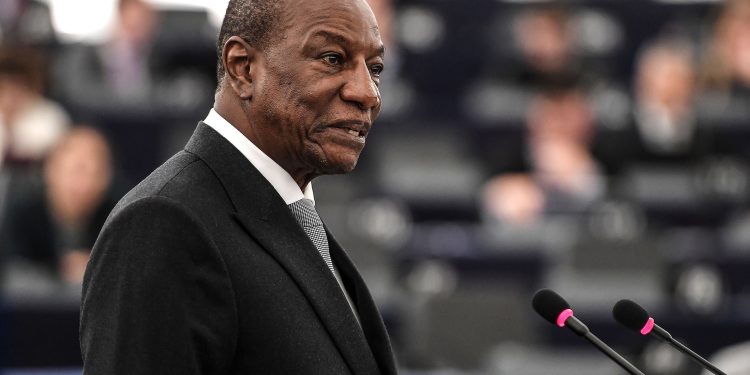The Executive Board of the International Monetary Fund (IMF), on December 9, 2020, completed the fifth and sixth reviews of Guinea’s economic performance under the program supported by an Extended Credit Facility (ECF).
Completion of these last two reviews of the ECF-supported program enables the immediate disbursement of the equivalent of SDR 34.43 million (about $49.47 million), bringing total disbursements under the arrangement to the equivalent of SDR 120.49 million (about $166.60 million).
Guinea’s three-year ECF arrangement was approved by the Executive Board of the IMF on December 11, 2017 for the equivalent of SDR 120.49 million (56.25 percent of Guinea’s quota).
The ECF arrangement aims at strengthening resilience, scaling-up public investment in infrastructure while preserving stability, strengthening social safety nets, and promoting private sector development.
While performance under the Fund-supported program remains broadly satisfactory, Guinea faces significant downside risks related to COVID-19 pandemic.
Following the Executive Board’s discussions on Guinea, Mr Mitsuhiro Furusawa, Acting Chair and Deputy Managing Director, issued the following statement:
Guinea’s performance under the ECF-supported program against end-December 2019 was satisfactory, with all but one end-December performance criteria (PC) met; the PC on the basic fiscal balance was narrowly missed reflecting higher-than-expected recurrent expenditures. Performance at end-June 2020 reflects the impact and the authorities’ appropriate response to the COVID-19 pandemic, with two PCs missed—on net domestic assets and net government borrowing from the central bank–as the authorities resorted to central bank financing to promptly respond to the health crisis ahead of expected COVID-19 related external disbursements. The authorities have thereafter taken corrective action and the Executive Board approved the authorities’ requests for waivers.
Although overall growth has been buttressed by a buoyant mining sector, the COVID-19 pandemic significantly affected the non-mining economy. Real growth is projected to reach 5.2 percent this year, but non-mining activity is only expected to grow by 2.4 percent, about half of the pre-pandemic projection. The improved mining production has not translated into higher fiscal revenue. The situation for the most vulnerable and households and informal sector workers has also worsened.
The 2020 fiscal relaxation to support the authorities’ COVID-19 response plan was adequate. The authorities made progress with their transparency commitments undertaken at the time of the RCF and are advised to continue implementing their budget transparently. The 2021 draft budget properly supports the post-pandemic recovery while ensuring debt sustainability. A return to the electricity tariff reform as the crisis subsides will be important to reduce untargeted electricity subsidies and create fiscal space for priority spending. In parallel, efforts to strengthen social safety nets should continue.
Revenue mobilization remains critical over the medium term. The authorities are encouraged to step up implementation of their revenue mobilization strategy, agreed at the time of the Fourth ECF review. In particular, it is essential to apply the provisions of the mining code, to ensure Guinea can duly benefit from its mineral resource wealth.
Guinea’s debt remains sustainable, at moderate risk of external debt distress, on the basis of a rightly reduced and rephased ambitious but realistic investment plans over the medium term. Going forward, it is essential to maintain prudent external borrowing policies, maximizing recourse to concessional borrowing. Progress should also continue on enhancing public investment management, strengthening budget execution, and improving cash and debt management.
While turning to temporary central bank advances to swiftly pre-finance some COVID-19-related spending as the crisis unfolded was a short-term solution, the advances should be fully repaid once the external financing is disbursed to avoid inflationary pressures.
Commendable progress has been made in enhancing foreign exchange flexibility. With foreign exchange reserves broadly adequate—supported by the authorities’ active accumulation during the ECF arrangement—recent steps to enhance flexibility and introduce a rule-based foreign exchange intervention strategy to reduce discretion are welcome.
Improvements to the anti-corruption framework are an encouraging development and the authorities should continue to implement reforms. The recent publication of the asset declaration form is a welcome critical step to allow for the operationalization of the new system, expected to start in 2021, and increase transparency and accountability.









